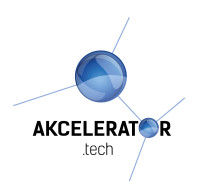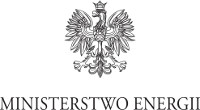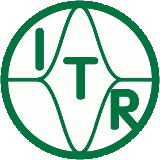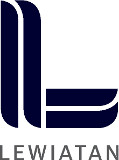| Article Index |
|---|
| Start |
| Photo gallery |
| Partners |
| Previous editions |

"The possibilities of using Blockchain in the power industry are obvious, however implementations should be introduced carefully, in order not to damage business, customers, and the Blockchain technology itself. In addition, the processes in the energy industry combine with each other, which means that for the effective implementation of technologies to, for example, servicing the balancing market, one should take into account the whole chain of events in all participants of this market, related to the process."
These words were commented on the potential of Blockchain technology dr Ewa Mataczyńska, member of the Technology Committee at EDSO for Smart Grids, during the discussion panel at the first "Blockchain in Energy" seminar, which took place on August 29 in Warsaw.
The organiser was CBE Polska. The moderator was Paweł Jakubik from Microsoft.
The seminar attracted not only technology companies presenting their solutions, but also a large group of energy producers. They showed their interest in the possibility of settling transactions with the omission of a central institutions, based on a distributed system verified by the participants themselves.
TECHNOLOGY IS READY ...
Small power producers are interested in using it. However, the regulations governing the use of distributed databases in Poland are yet to be established.
LARGE ENERGY FIRMS
The Polish power industry is based on large-scale companies. The electricity is generated in dozens of large power plants belonging to one of the four state-owned companies. The same companies dominate the distribution system. There are of course many small companies producing or selling energy, but they operate in a system tailored to the needs of the energy giants. Industrial customers can buy electricity on the Power Exchange, or (what the Ministry of Energy intends to eliminate completely) directly from the producers. Each of us for the power industry is so-called "a household customer", using the G tariff. We can of course choose a supplier of energy, but if we wanted to buy power directly from our neighbor, who has invested in solar panels and produces more than it consumes, it would be virtually impossible. The law allows you to sell electricity only to companies that have obtained a license of an energy trader.
DECENTRALISED TECHNOLOGIES
The opposite of such a system is the idea of dispersed energy, in which there are thousands of small energy producers. They can sell services in local networks, and the state network is for them as well as for their customers an emergency exit; security or as IT specialist would say - backup. Backup, for which of course you have to pay. New technologies are conducive to distributed systems. Transaction settlements in local energy clusters could be carried out using Blockchain technology. This technology is best known to cryptocurrency lovers. The most popular of them - bitcoin - secures transactions through cryptographic mechanisms controlled by the interested parties themselves. Data exchange between computers running on a peer-to-peer network ensures credibility. Confidence and invariability are the basis of the trust. It is not possible to fake a register stored on many computers. What's more - transaction data is transparent while ensuring the anonymity of system participants. The storage of transaction information in the form of digital blocks is also referred to as DLT - distributed ledger technology. DLT is a distributed database. The record is kept by many countries or institutions and is most often publicly available. However, instead of being grouped into blocks, the record is kept in a continuous system. Distributed registers require trust of guarantors and system operators. Just like the banking system.
REQUIRED LEGAL REGULATIONS
Does Blockchain seems difficult to apply? Nothing could be more wrong. It is already working and many countries have already introduced appropriate legal solutions. In January 2018, Blockchain was defined by the decree of the President of Belarus. In March 2017, appropriate regulations were adopted in the state of Arizona, in Vermont even earlier, in 2016. The United Arab Emirates are implementing a special strategy aimed at implementation of Blockchain technology by 2021. The Financial Services Act, in force since September 2017 in Gibraltar, defines DLT as a distributed register, i.e. a database system in which information is recorded, shared and synchronized in a network of nodes, and all files are treated as equally authentic.
The legal language is a bit complicated, but by regulating these issues you can develop services based on the latest digital technologies. Also, appropriate regulations are being prepared in the European Union. Marija Gabriel, EU commissioner for the digital economy, believes that Blockchain technology will significantly affect digital services and will change business models, including in health care, insurance and energy. She also claims that in the society of the 21st century, all public services will use these technologies. A motion for a resolution to the European Parliament on the technology of a distributed register and Blockchain, building trust for fund flows, bypassing banking intermediation, was developed in May 2018. Consultations and arrangements are underway.
THE APPROACH OF INDIVIDUAL MARKET PARTICIPANTS
An enthusiast and expert in the subject of DLT technology is prof. Dariusz Szostek, a lawyer from Szostek Bar and Partners law firm who closely follows legislative work in the EU. He encouraged Poland to join the leaders introducing these technologies into legal transactions.
The use of this technology can accelerate due to the development of electromobility. Anna Streżyńska, the long-term head of the Office of Electronic Regulation, the Minister for Digitization in the government of Beata Szydło, pointed out that the connection point in the power industry will become mobile. Owners of electric cars will want to use the services of their energy supplier in different locations - where they will be present. The location of the connection point will be similar to the placement of a bank account, and recently also many public electronic services.
BLOCKCHAIN ENTERING BOTTOM UP
This is what Seweryn Szwarocki, the vice president of the board of the Commodity Clearing House, believes. Prosumers or companies within an energy cluster will create an organisation where they will start buying and selling energy using Blockchain on a similar basis as today users share data and applications in the cloud. Such an organisation could, under today's legal conditions, gain the power to trade energy and represent the offer of a group of manufacturers on the Polish Power Exchange.
BLOCKCHAIN FROM THE OSD VIEW POINT AND THE MOBILE NETWORK CONNECTION.
Mieczysław Wrocławski, Proxy for Innovation from the Department of Business Line Management Distribution from Energa Operator commented on the use of Blockchain from the point of view of the DSO and the mobile connection point to the network.
"Trading of electricity takes place above the distribution net. It is billed on energy trading platforms. Blockchain platform can be another platform for direct exchange (but what about the tax office). From the point of view of a DSO, it does not matter because the network is introduced by the producer, where it will be measured and moved to the recipient (where it will also be measured). A distribution fee will be charged for using the power grid, data will be transferred to the Balancing Market (RB) and the problem arises because the Balancing Authorities will not have the information about transactions conducted between Blockchain participants who trade with each other." - said Wrocławski.
"The problem for the DSO will appear when there is a virtual or mobile connection point. This applies to electric cars, campers, mobile magazines or electric car, which will have an energy meter and will need to settle it with a household meter (Law on electromobility). It remains to be settled which operator will be responsible for the transaction? It seems natural that it would be the operator that provided the service energy, however it would be more difficult if part of the energy was transferred to another operator's network and behaved like a mobile energy storage (distribution fee related to energy storage should not be charged and such legal changes are underway) and was actually sold to a different neighbour week earlier. The Blockchain technology can facilitate such settlements if the DSO will be a participant in such a platform. DSO could even run such a platform - it would be new form of activity, but the participant selling energy can buy a sack of potatoes for it (there are no restrictions) and this should not be an OSD business (although many things change)." - added Mieczysław Wrocławski.
Dr Ewa Mataczyńska, a member of Technology Committee at EDSO for Smart Grids, referring to Mieczysław Wrocławski's statement, emphasized: "...an example of a mobile place of connection is today PKP, where settlements are traditionally conducted. Of course, regulations can always be changed, especially if there is an approval for the new technology by the government, however, it is necessary to specify what we want to achieve by introducing Blockchain technologies to the sector. Not in all cases, the technology may turn out to be better than the existing solutions. It is difficult to verify the Blockchain technology, because there are no large commercial implementations in the sector that would bring enough experience to confirm with a 100% certainty that the technology brings more benefits than threats to the distribution and transmission of energy.
This is not only about security related to cyber-attacks on data that is processed in the sector, but also about the network security related to the stability of the entire system - also through the balancing market. Of course, technology at the current stage as we know it seems to be a big support for the processes implemented in the sector. It would be easiest to apply it to the commercial and manufacturing part of the sector.
For the large solutions using Blockchain in the power grid, it will be necessary to wait for the gathering of experience, to achieve the stabilization of technology, so that by implementing it, for example, for processes related to network automation, it has a guarantee of system security.
In real terms, looking at the sector and the possibilities of implementing solutions (not only pilots) based on Blockchain, it should be borne in mind that companies will be guided by economic conditions. Replacing currently operating large IT systems (even the one operating the balancing market), modernized over the years to meet the complex requirements of customer service and network management, for Blockchain-based systems must be economically justified, while guaranteeing safety in all its aspects. Of course, you can start the above discussion by highlighting the changes that occur on the energy market, i.e. the rapid development of renewable energy, the development of new network services, eg DSR or flexibility, decentralization, activation of customers, a strong focus on ecological life (production and consumption of RES energy, electric cars). Blockchain in these cases meets the expectations of the sector. "- added Dr. Mataczyńska.
ACCORDING TO ANNA STREŻYŃSKA "AN IMPORTANT ELEMENT IS EDUCATION ..."
"An important element is the awareness of the market, so that the innovations that are possible thanks to Blockchain technology are not distorted by the negative perception associated with some of its applications (such as bitcoin/cryptocurrencies)" - she said.
According to the expert, this may lead to unreasonable moves by the administration. An example would be blocking the Blockchain Technology Accelerator, which was launched by the Ministry of Digitization, together with the National Center for Research and Development, during the term of Anna Streżyńska as the Minister of Digitization. Anna Streżyńska believes that cryptocurrencies are at most 1 promil of all business, administrative, social or utilities opportunities provided by this technology. However, the popular opinion is that Blockchain boils down to cryptocurrencies.
Professor Krzysztof Piech, president of the Polish Blockchain Technology Accelerator, believes that the problem with the implementation of Blockchain technology in the energy sector (in Poland) boils down to the lack of courage in making risky decisions and the lack of willingness to compete with the leaders. Blockchain according to Prof. Piech can give the world a bigger breakthrough than the internet, because it gives the opportunity to pass: value, shares, money or other things that can be expressed in the form of a financial product.
Microsoft experts: Paweł Jakubik, Tomasz Kozar, Jarosław Zarychta showed during their presentation how to implement the Blockchain project from an idea to a roll out and with adversities could be faced. Knowledge about Blockchain in society is minimal, and one of the current aims of Microsoft is to educate, in order to accept innovation in the sphere of Blockchain. An example of ignorance in the field of this technology are the questions asked by journalists after Microsoft won along with Billon the competition organized by PGNiG for the best use of Blockchain technology in the energy sector. Most of the questions asked were about bitcoins – completely unrelated to the project.
Commercialization of technology in Poland is at a very low level. In the next part of the presentation Microsoft discussed what, apart from education, can be done to make more projects appear? How to integrate services on the market? In fact, the architecture needed for identity management is already in the possession of Microsoft. Each node on Private Blockchain must be identified. However, the challenges that we can expect are compliance with regulatory standards, secure architecture (which will not be subject to attacks), and compliance with corporate standards.
How can such an ecosystem be integrated with the existing infrastructure of an energy company? It's worth asking 4 questions to decide if Blockchain can solve our problem. These questions are: do we need a database to solve our problem? Do many participants share information? Is there a lack of trust in the group? Is there a broker that can be advantageously eliminated? If we answer "yes" to all the questions, it is possible that we have encountered a situation in which the use of Blockchain technology is justified by business.
The President of the Polish Association of Electromobility, Sylwia Koch-Kopyszko, for her part, said that Blockchain will be crucial in solving the problems that energy industry will soon face. This is related to the fact of the growing number of electric cars and the impact it will have on the energy system. Blockchain is an opportunity to apply Vehicle2Grid technology, i.e. charging cars, and using them as small energy stores to balance the network.
ENERGY - DOES BLOCKCHAIN HAVE POWER?
In the general opinion of a wide range of specialists there is a belief that the energy sector for IT companies is quite specific. It is highly hermetic, specialized in its field with complex dependencies and structure - emphasized Maciej Tomkiewicz from Oracle. The first and the most common example of pilot projects in the use of the Blockchain is the system of direct energy trading. Japan, the United States, and Canada, are the first countries under which micro-clusters were launched under which the surplus of energy production from a solar source could be sold directly to its neighbour. The transaction was carried out outside the broker, and the method of settling the transaction was based on cryptocurrencies.
Distributed registers have their potential also in the processes related to electricity trading. The form of micropayment for the services of charging an electric car without the need for unnecessary registration in the system.
IS BLOCKCHAIN GOING TO ELIMINATE OR LIMITE THE INFLUENCE OF LARGE ENERGY CORPORATIONS?
"Absolutely not. However, under one condition: Distributed systems and decentralization of values is a direction from which you cannot escape. It is important not to miss this moment and adapt your business to the changing environment. It seems the necessary minimum" - said the Oracle expert.
LEADERS IN THE FIELD OF BLOCKCHAIN OF THE CEE REGION
During the event, the countries that were mentioned as leaders in the field of Blockchain in our region were Estonia, Belarus and Georgia, which try to specialize in Blockchain technology.
Maciej Tomkiewicz from Oracle also cited examples of R & D research in Europe on the use of the potential of smart contracts, executable instructions stored in the Blockchain, which are the equivalent of traditional contracts and their conditions. Tests of this solution in combination with the smart meter show the full possibility of remote enforcement of the contract without the need for third parties and without worrying about its unauthorized use. The form of such a recording enables, for example, the reduction of contracted power to safe power in the case of switching on power stages and problems with energy production.
A good example was the presentation of Richard Plum from Procom. He presented three main advantages of intelligent contracts such as: reduction of costs by automation of business processes and processing of orders, reduction of workload for the execution of an order, and security of such orders.
The expert emphasized that "... in the past, the distribution of energy was characterized by one-way transmission, centralization and monopoly. However, the revolution in energy distribution leads to decentralized production, development of smart grids and two-way power flows. A smart network provides a certain amount of flexibility and balance of the network, however it is Blockchain that has the potential that can bring democratization of energy Blockchain application and will give us the opportunity to choose when, what energy and from what source, our car is charged." - Plum added.
The German Energy Agency (DENA) also took part in the event. Its representative, Philipp Richard, presented the test that DENA started in May this year. The study participants are: Siemens, Verbund, Alliander, and others. The aim of the project is to analyze the development of technologies based on 16 implementations. The research will allow to determine the limits of the usability of the technology, show the economic legitimacy of implementations, and help to develop a regulatory environment.
Sören Högel from WSW Wuppertal showed how the energy trading platform implemented in his company works. It has been operating for several months as a Tel.Markt platform. Platform participants can directly buy and sell their energy. Implementation of the system took WSW only 9 months.
In turn, Michael Schramel from Verbund shared several company implementations in the field of Blockchain. It is used in the following projects: Transactive grid, "Proof-of-concept", and Enerchain. Transactive grid focused on the use of real-time energy consumption data to optimize the maximum use of network resources. Proof-of-concept in the case of Verbund has been used to optimize the energy flow in buildings in such a way as to optimize the consumption of the energy. Enerchain, on the other hand, is an international project involving wholesale energy trading, in which Verbund also participates.
Author: Maria Przekopowska, CBE Polska
This article is based on the debates held during the "Blockchain in Energy" Seminar, which took place on August 29, 2018 in Warsaw. The organizer was CBE Polska. Also, an article about the REO Foundation by Dorota M. Zielinska and an Oracle problem article by Maciej Dzięcielak and Maciej Tomkiewicz, published in a jubilee article in Smart Grid Polska, was used.
We would like to invite you to the next edition planned for 2019. If you have any suggestions about the program / organization or are interested in cooperation or speech, please contact us ().

































